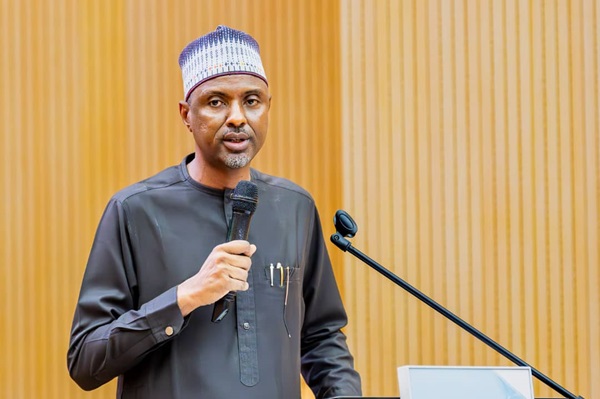
The Federal Government of Nigeria, through the Federal Ministry of Communications, Innovation and Digital Economy, held a stakeholders’ workshop in preparation for the upcoming Summit of the Future at the United Nations General Assembly (UNGA).
This workshop aimed to review Nigeria’s position on the Global Digital Compact, which will be presented by the Minister of Communications, Innovation and Digital Economy, Dr. Bosun Tijani at the UNGA in September 2024.
Held in Mbora, Abuja, the workshop was titled “Stakeholders’ Workshop to Review Nigeria’s Statement to the Global Digital Compact (GDC).” Tijani, represented by the permanent secretary of the ministry, Engr. Faruk Yusuf Yabo expressed the ministry’s enthusiasm for hosting the workshop.
“The ministry is excited to host this workshop where Nigeria’s position in the United Nations Global Digital Compact making process for the future summit will be redefined. As we march into the Summit of the Future by the United Nations, we will be contributing positively and in an informed way,” said Yabo. “Our contributions to the overall policy-making process of the UN will enable us to highlight our achievements and present a unified position on the Global Digital Compact’s future summit.”
In his opening remarks, Yabo emphasised the importance of the workshop in shaping Nigeria’s global position. He noted that Nigeria has been an active member of the UN General Assembly since its inception. The key topics discussed at the workshop included digital transformation and digital revolution, influenced by global trends such as climate change, desert encroachment, the COVID-19 pandemic, global conflicts and economic challenges.
“Technology stands out as a pivotal solution to deal with the myriad of issues we face today. It is extremely important for Nigeria to align with the global drive to accelerate access and inclusivity through advancements in AI, robotics, the Internet of Things and big data,” Yabo stressed.
Nigeria’s focus is based on the five key objectives of the GDC:
1. Close all digital divides and accelerate progress across the Sustainable Development Goals (SDGs).
2. Expand inclusion and benefits from the digital economy for all.
3. Foster an inclusive, open, safe and secure digital space that respects, protects, and promotes human rights.
4. Advance equitable and interpretable data governance.
5. Enhance international governance of artificial intelligence and emerging technologies for the benefit of humanity.
In his goodwill message, the country director of the United Nations Information Centre for Nigeria, Ronald Kayanja provided background on the United Nations Global Survey (UNGS), which highlighted the changes the world faces today compared to 1945. Kayanja mentioned that the UN Secretary-General, Antonio Guterres had proposed a new path for the world in response to these changes.
“The UN will be eighty years old in 2025 and the Summit for the Future will take place in New York this September. This summit will produce two critical inter-governmental outputs,” Kayanja stated. “The first is Part of the Future, which includes components such as sustainable development and financing, international peace and security, science, technology, innovation and digital cooperation, youth and future generations and local governance.”
Kayanja emphasised the significance of the GDC in closing the global digital divide, particularly for the African continent. He identified Germany and Namibia as the core facilitators for the international digital compact, with Sweden and Zambia facilitating the local digital compact. He noted that the UN had previously drafted a document and revised it on June 26 for the global digital compact.
Expressing his satisfaction with the stakeholders’ consultations, Kayanja highlighted their importance in enhancing Nigeria’s and Africa’s voice in the global arena. “Nigeria’s input in the GDC is crucial not only for her but also for Africa as a whole, given the continent’s challenges in digital transformation and digital divide.”
He called on participants to bring their expertise and experience to bear in developing effective recommendations for the final draft of the GDC, ensuring that Africa’s voice is heard for generations to come.
The UN GDC has posed structured questions to facilitate Nigeria’s review and contributions for the future summit:
1. What projects, programmes, or initiatives has the country implemented that relate to the GDC objectives?
2. What projects, programmes, or initiatives are in the pipeline?
3. What recommendations does the country have for modifications or removals based on local realities?
The workshop was attended by key stakeholders, including directors in the ministry, the director-general of NITDA, Mallam Kashifu Abdullahi and other prominent figures. A statement by the ministry’s deputy director of press and public relations, Kania Maliki Andeyaba confirmed the robust participation and engagement at the event.


